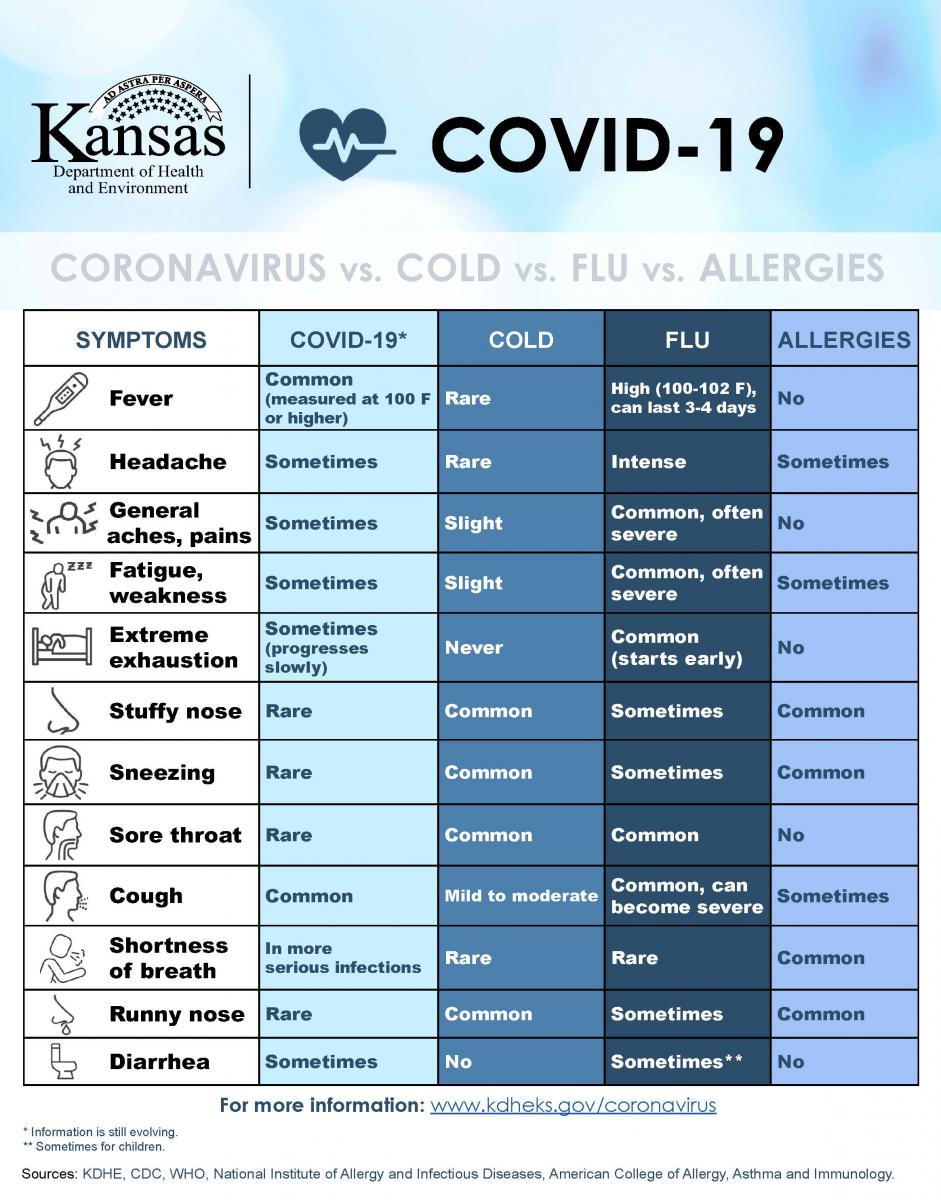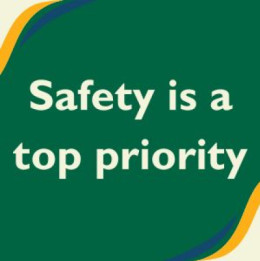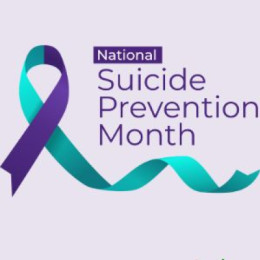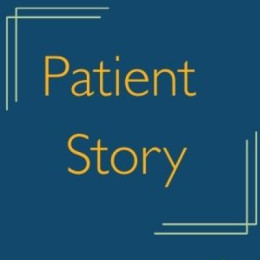Posted On: September 14, 2020 by Community HealthCare System in: Community health news
You aren’t feeling well. You are tired and achy, and you have a cough. Do you have a cold, the flu, or COVID-19? As flu season approaches, it’s important to learn how to recognize a few differences and know when to seek help from your healthcare provider.
If you have a cold, your symptoms probably came on gradually. The most common symptoms are a stuffy or runny nose, sneezing, sore throat, and mild to moderate cough. General aches and pains and fatigue could occur but should be slight. Fever, headache, and shortness of breath are rare, and diarrhea should not be a symptom of the common cold.
“Colds are miserable, and they typically last 7 to 10 days, but symptoms should be fairly mild,” said Michele Reisinger, advanced practice registered nurse at Community HealthCare System.
The best treatments for a cold are rest and drinking more fluids. Over-the-counter medications can help with some symptoms, but the body’s immune system will eventually defeat a cold. Antibiotics won’t help, because they are effective only against bacteria, and colds are caused by viruses. If symptoms aren’t improving after 10 days, you should call your doctor.
If you have influenza, you probably experienced sudden onset of symptoms, likely including a high fever (100 to 102 degrees Fahrenheit); intense headache, body aches, and fatigue or even extreme exhaustion; sore throat; and cough, which can become severe. Shortness of breath and diarrhea are rare, although diarrhea sometimes occurs in children.
The best way to fight influenza is to be sure you and your family members receive a yearly flu vaccine.
“Flu shots are more important than ever to potentially prevent illnesses that pose increased health risks which may further increase susceptibility for other viral illnesses such as COVID-19,” Reisinger said.
Flu shots are widely available starting this month at pharmacies, grocery stores, and other locations, and CHCS clinics and other healthcare providers should have doses available soon. If you have the flu, your provider may prescribe antiviral drugs, but prevention is a better option.
In addition to getting a flu shot, people should be sure to get enough sleep and exercise, eat healthy foods, and practice good hand hygiene.
If you have COVID-19, you are unlikely to have a runny nose and sinus congestion. Sneezing and sore throat are also rare. More common symptoms include a fever of 100 degrees Fahrenheit or above, a dry cough, and changes in or loss of the sense of taste or smell. Body aches, fatigue, and shortness of breath can also occur.
“COVID-19 diagnosis is tricky, because symptoms range from mild to severe. The best way to be sure if a patient has COVID-19 is to test using a nasopharyngeal swab,” Reisinger said.
COVID-19 test results can take a few days to come back, and patients who are positive or who have pending tests should isolate themselves from others to avoid spreading the virus.
According to Reisinger, it’s important to be cautious this year and consult your healthcare provider with questions.
“Everyone needs to work as a team to protect our communities from influenza and COVID-19 this year. Wear your mask, wash your hands, and avoid large groups and close contact with others. Follow social distancing guidelines at school events and while out shopping so we can avoid the double whammy of a bad flu season and high COVID-19 infection rates. When in doubt, contact your provider,” she said.
CHCS Chief of Provider and Clinic Operations Merica Surdez echoed Reisinger’s thoughts.
“This flu season is going to present great challenges amidst the COVID-19 pandemic for both patients and providers. COVID-19 symptoms can mimic common viral infections such as rhinovirus (the common cold) and influenza, and patients can have co-existing infections with influenza and COVID-19,” Surdez said.
“Without testing, your diagnosis cannot be clearly identified. Do your best to social distance and wear a mask. If you develop even minor symptoms, isolate yourself at home and consult your healthcare provider. Know that all of our providers here at CHCS are here to help you and your family during these challenging times,” Surdez said.
Additional resources
- Read more about similarities and differences between flu and COVID-19. The Kansas Department of Health and Environment COVID-19 website also contains a wealth of information, including frequently asked questions and what to do if you are sick.
- A graphic that compares symptoms of COVID-19, colds, flu, and allergies is available on the KDHE website












0 comments